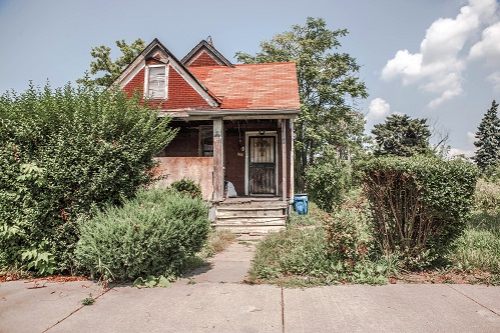How to compare homeowners insurance quotes step-by-step
Follow these steps to compare home insurance quotes and find the best policy.
Decide how you want to shop
There are a lot of options for insurance shoppers, so the first thing you decide is how you prefer to get quotes. You can:
- Work with an independent agent or broker who will get quotes for you
- Go directly to insurance companies either in person, online or over the phone
- Use an online quote system that gathers multiple quotes at once
If you need help choosing the right coverage or are new to buying home insurance, consider working with an agent who can walk you through the process.
Gather all of the necessary information
To get accurate quotes, you will need the correct information handy. Gather the following details:
- The year the home was built
- The square footage of the home
- Details of the construction of the home, including construction type and materials inside and out
- Who will be living in the home in addition to any pets
- Any special features of the home, such as a pool
Request quotes
By whatever method you have chosen, request several quotes; we recommend getting three to five. As much as possible, ensure that the coverage on the quotes is the same for a fair comparison. Be aware, however, that each insurance company will calculate the replacement cost of your home using a proprietary system, and those numbers will differ.
Review and compare the quotes
Compare each of the quotes side by side, looking at the following:
- Dwelling coverage amount (replacement cost of your home)
- Personal property coverage limits
- Deductible
- Any included extended replacement cost coverage
- Any other coverage that is included with the standard policy
- Discounts that have been applied
Research the insurance companies
While the first thing you’ll see when comparing quotes is the price, it’s far from the only thing you must consider. The company offering the policy is as important as the price and coverage.
Siwei Gao, professor of insurance studies at Eastern Kentucky University, outlines what to look at when comparing homeowners insurance quotes and the companies offering them.
“When evaluating a home insurance company, consider the following key factors,” she says.
- Financial stability: Ensure the insurer's ability to pay claims. Consult ratings from agencies like A.M. Best, Moody's and Standard & Poor's.
- Customer experience: Consider the company's responsiveness, 24/7 claim services and claim settlement history. Research customer reviews for insights.
- Coverage options: Ensure the offered coverage meets your needs. Be aware of policy exclusions, especially for valuables like jewelry, firearms and cash. Consider endorsements for specialized coverage.
- Premiums & discounts: Compare rates across insurers for similar coverages. Investigate available discounts, such as for bundling or security systems.
- Deductible options: Check for deductible flexibility to align with your financial capacity.
Gao also suggests doing a policy review with your current home insurance company as part of the process of shopping for home insurance. This will ensure the price you’re getting now is accurate before you compare it to other companies.
“Reassess coverage in light of property value changes, home improvements, or new acquisitions. Also consider safety upgrades, updated deductibles, discount eligibility and updated rate competitiveness,” Gao says.
Where to get home insurance quotes
You can get home insurance quotes online, over the phone, or in person through an insurance agent.
You can also choose to request quotes one by one or use either an online quote comparison service or an independent agent to get multiple quotes at once.
Here’s a breakdown of the options.
Getting homeowners insurance quotes online
You can get homeowners insurance quotes online in two ways; either directly from a home insurance company or from a quote comparison service. There are pros and cons to going this route:
Pros:
- You can get quotes from anywhere at any time
- You can get multiple quotes quickly
- You don’t need to speak with anyone and won’t feel any pressure to buy
- You can go back through the process to change coverage levels and deductibles, add or remove options, and see the differences in the rate as you go
Cons:
- There’s no one to answer any questions you might have
- You’ll be on your own when choosing coverage and deductibles
- If you use company websites, you’ll have to enter your information repeatedly (quote comparison sites don’t have this issue but may also be less accurate)
Working with an independent agent
An independent agent works with multiple insurance companies and can prepare multiple quotes for you to compare. Consider the pros and cons of comparing quotes with an independent agent:
Pros:
- Quotes are prepared for you by a professional
- You’ll get advice and assistance while comparing the options
- An agent can select the insurance companies that are best for your needs and may find options you didn’t know about
Cons:
- You won’t get quotes from the big companies that use their own agents (State Farm, Allstate, Farmers)
- Independent agents can only quote companies they’re contracted with
Getting quotes from an independent broker is also an option. A broker is similar to an agent but works for you rather than for the company. They may charge fees for their services.
Getting home insurance quotes directly in person or over the phone
You can get quotes directly from insurance companies with an agent, in person or over the phone. If the company uses captive agents (agents that work only for that company), you’ll have the in-person option. If not, you must talk to a representative over the phone.
Pros:
- An agent offers personal service and can answer your questions
- You’ll have help with the quoting process and with choosing coverage
- An agent can let you know about additional options to add to your policy that might be right for you
Cons:
- You’ll have to provide the information repeatedly to each agent or representative
- You might feel pressured to buy or wind up on an agent’s marketing list
What do you need for an insurance quote?
Before you get insurance quotes, gather the following information.
- Personal information such as the address of the house, your full name and the number of people living there, any pets that will live there and how long you’ve lived there
- The year the house was built, its square footage and number of stories as well as the number of bedrooms and bathrooms and whether there is a finished basement
- Details of the home’s construction, including flooring type, countertop materials and features like fireplaces or cathedral ceilings
- Claims history for the house (that you know of) and your past claims on other properties
- The age and type of the roof, as well as the age of the furnace; on an older home you may also be asked about plumbing and wiring updates
- Additional features like a pool, hot tub and other structures on the property
Home insurance quotes comparison: An example
To help you see what some of the differences might be from quote to quote, here’s a look at three sample quotes and their differences. In this table, ACV refers to actual cash value (depreciated value) and RCV refers to replacement cost value. All dwelling coverage is at replacement cost.
| Company | Coverage included | Annual rate |
|---|---|---|
| Company A | Dwelling: $356,000 Personal property: $178,000 ACV Liability: $300,000 Deductible: $1,000 | $2,255 |
| Company B | Dwelling: $322,000 + 125% RCV Personal property: $193,200 RCV Liability: $100,000 Deductible: $1,000 | $3,214 |
| Company C | Dwelling: $361,000 + 150% RCV Personal property: $252,700 RCV Liability: $300,000 Deductible: $2,500 | $3,198 |
Each of these quotes has some pros and cons
Company A is the cheapest but also has the lowest dwelling coverage since Company B’s extended replacement cost coverage increases that limit. It also insures personal property at actual cash value and for 50% of the dwelling coverage.
Company B, meanwhile, has extended replacement cost coverage and replacement cost coverage for personal property, which is insured at 60% of the dwelling coverage. It has less liability coverage, however, and the highest rate but a lower deductible than Company C.
Company C offers the most coverage, with 150% dwelling replacement cost and personal property insured for 70% of the dwelling coverage and at replacement cost. It is a little cheaper than Company B, likely due to the higher deductible. With this company, you’ll get better coverage for less but pay more if you have a claim.
Which option you choose depends on your budget, your willingness to risk being underinsured in the event of a claim and the deductible amount you can handle. Before you buy, make sure you have taken the time to review the insurance company’s reputation; our ranking of the best home insurance companies is a good place to start. A cheap rate doesn’t matter when you can’t get the service you need or the company won’t pay your claim.
Remember that you can adjust coverage levels and deductibles to see how it changes the price.
FAQ: Homeowners insurance quotes
How much does home insurance cost?
The average cost of home insurance nationwide is $2,601 a year. However, there’s a lot of variation in rates from location to location, and factors about your house will also affect the cost.
Can I get an insurance quote before buying a house?
Yes, and in fact you should be comparing quotes as you’re in the house-shopping process. You must select and buy a homeowners insurance policy before closing on your home.




